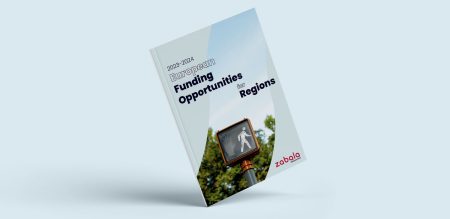
Opinion
ENERGY STORAGE
The map of European support for battery projects

Alessandro Provaggi
Head of Brussels office
ECOSYSTEMS
The future of innovation in organisations should involve open models. Organisations must build and expand their ecosystems and establish connections in order to collaborate.

Technology changes very quickly and substantially all aspects of the business, rewriting the rules with customers and competitors. As a cause, the boundaries between sectors blurs and organisations break down departmental boundaries and become liquid.
Reducing the cost of access to technology leads to the democratisation of knowledge: this is no longer exclusive to large organisations, but anywhere in the world small teams with a transformative idea or agile teams and execution dynamics can generate change and disrupt the market. We all know the cases of Airbnb in the hotel sector or BlaBlaCar in the transport sector. But this is especially significant if we look at what is happening in Africa where important innovation ecosystems seem to be emerging that are giving rise to interesting disruptive startups in countries such as Ethiopia, Ghana or Rwanda – the new and unexpected African Singapore. The African continent, and specifically Rwanda, followed by Kenya, South Africa, Senegal, Tanzania, Ethiopia, Nigeria, Ghana and the Ivory Coast, have evolved to be some of the most developed ecosystems. Thus, on the international scene, led by the United States (Silicon Valley, New York, Boston, Los Angeles); Europe (London and Stockholm); Asia (Tel Aviv, Shanghai, Tokyo, Seoul, Shenzhen or Hangzhou); this new possibility is joined on the international scene.
Technology has eliminated distances between people and organisations as well as geographical advantages, and today it is undoubtedly easier to connect and collaborate with innovative organisations around the world. This has led to a phenomenon whereby companies are changing the way they innovate, moving from a model in which all innovation takes place internally, to a model of open innovation in which they integrate external agents, research centres, universities, suppliers and even competitors. Open innovation stimulates innovative capacity and accelerates knowledge transfer, promoting agility in reaching the market and the competitiveness of organisations.
This business evolution is a consequence of a change in mentality and the understanding of the need to integrate external talent into organisations, especially in the complex and dynamic times that require innovation and agility.
At Zabala, since our creation, we have worked to promote the innovation for our clients and we analyse the opportunities associated with open data processing and digital technologies. More specifically, we observe that organisations in their innovation processes need to: accelerate innovation, be able to monitor technological trends continuously and in an agile manner, find innovative entities and finance these actions.
We created Kaila, the digital platform that promotes open innovation in organisations, helping them to create and manage their innovation ecosystems at a European level.
Have you registered? Take a look and you will understand how you can make your ecosystem grow. Make it stand out.
Kaila helps you manage your innovation ecosystems. Try Kaila for 1 month without commitment.

Opinion
ENERGY STORAGE

Alessandro Provaggi
Head of Brussels office

Opinion
EU POSITIONING SERVICE

Marcos Jareño
International Business Development

Opinion
LIFE 2021-2027

Raquel Maeztu
Senior European Projects Consultant and LIFE Programme Expert

News
Green & Digital

Opinion
MSCA-DN

Abel Muñiz
Consultant and Marie Skłodowska-Curie Actions expert

Publication
Regions
Innovation is key to making regions more digital and sustainable, and in our publication you will learn about the funding opportunities that make this possible
The important thing is not to keep moving, but rather to know in which direction to go. Our 37% success rate proves that we know how to guide our clients.
This website uses cookies so that we can provide you with the best user experience possible. Cookie information is stored in your browser and performs functions such as recognising you when you return to our website and helping our team to understand which sections of the website you find most interesting and useful.
Strictly Necessary Cookie should be enabled at all times so that we can save your preferences for cookie settings.
This website uses Google Analytics to collect anonymous information such as the number of visitors to the site, and the most popular pages.
Keeping this cookie enabled helps us to improve our website.
Please enable Strictly Necessary Cookies first so that we can save your preferences!
This website uses the following additional cookies:
(List the cookies that you are using on the website here.)
Please enable Strictly Necessary Cookies first so that we can save your preferences!